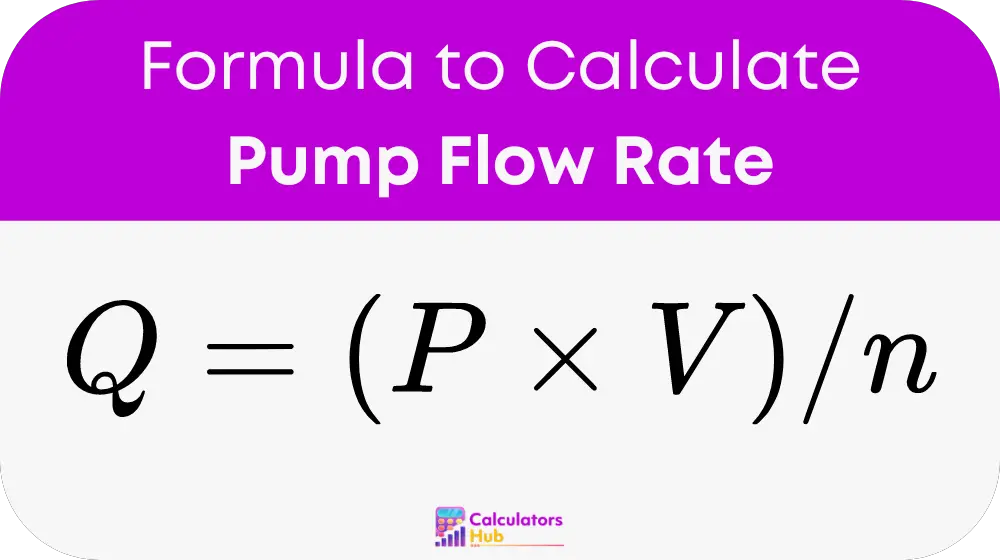The Pump Flow Rate Calculator is an essential tool that helps users determine the flow rate of a pump, which is the volume of fluid that a pump can move in a specified period. This measurement is critical for designing systems and for operational maintenance to ensure efficiency and prevent issues.
Formula of Pump Flow Rate Calculator
The calculation of the pump’s flow rate can be expressed with the following formula:

Where:
- Q is the flow rate in cubic meters per second (m³/s)
- P is the pressure in pascals (Pa)
- V is the volume in cubic meters (m³)
- n is the efficiency of the pump (dimensionless)
Understanding each factor is essential for accurate calculations, ensuring that systems are both efficient and effective.
Conversion Table
To aid in the practical application of our calculator, here is a conversion table that can be used for quick reference:
| Parameter | Unit | Conversion |
|---|---|---|
| Pressure (P) | pascals (Pa) | 1 bar = 100,000 Pa |
| Volume (V) | cubic meters (m³) | 1 liter = 0.001 m³ |
| Flow Rate (Q) | cubic meters per second (m³/s) | 1 m³/s = 1000 liters per second |
Example of Pump Flow Rate Calculator
Consider a pump with a pressure of 500,000 Pa, a volume capacity of 2 m³, and an efficiency of 0.85. Using our formula:
Q = (500,000 * 2) / 0.85 ≈ 1,176,470 cubic meters per second
This example demonstrates how to use the formula to calculate the flow rate effectively.
Most Common FAQs
The pump flow rate is the volume of fluid that can be moved by the pump in a given time.
Incorrect calculations can lead to inefficiencies, increased operational costs, and potential system failures.
Pump efficiency typically ranges from 0.6 to 0.9, depending on the pump design and operating conditions.